Drone wars: Why Britain's attack in Syria is a game changer
- Published
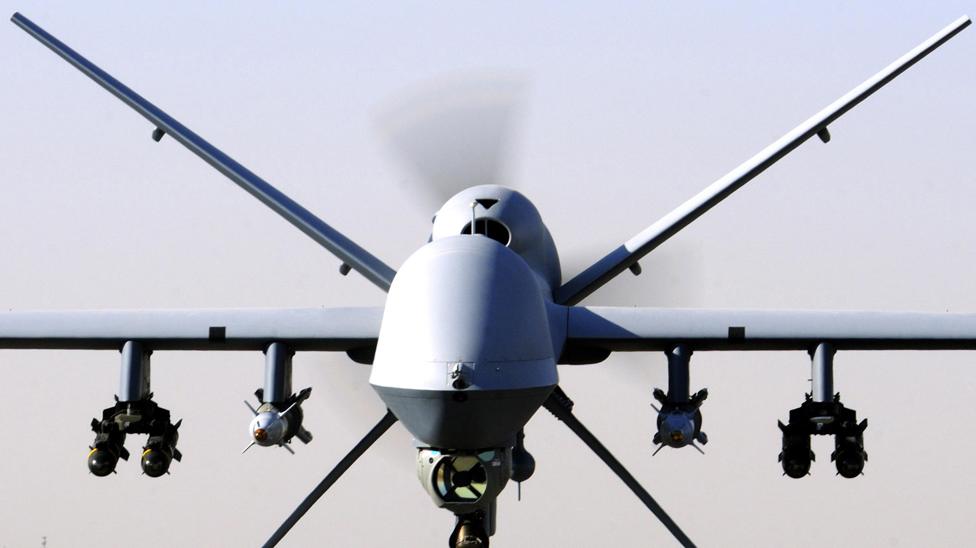
Drone strikes targeting individuals from thousands of metres up in the sky are no longer something from Homeland.
In fact the TV drama's depiction of "remote war" has been pretty accurate for some time.
Hundreds of suspected militants - from Afghanistan to Yemen - have been killed over the last six years by US drones.
Now the UK government has revealed two British men have been killed by a Royal Air Force (RAF) drone in Syria in an act of "self defence".
Here is your Newsbeat guide to drone war.
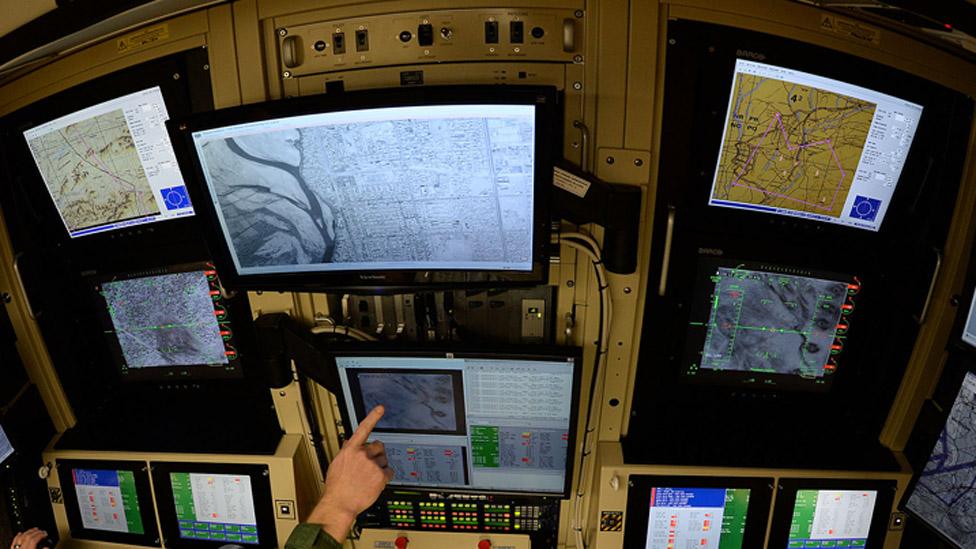
The UK's drones in the Middle East are controlled from thousands of miles away, in Lincolnshire
Military bosses don't like you calling their pilotless aircraft drones.
They prefer unmanned aerial vehicle (UAV) or remotely piloted air system (RPAS) - also known as a Reaper.
Most agree they are the future of warfare. It seems they have fast become the present of warfare.
Britain's drone operations have been quietly getting bigger for several years.
Drone control: Britain's expanding role
RAF Waddington in Lincolnshire is the UK's "drone HQ".
From here, unmanned aircraft based in Iraq, Afghanistan - and now Syria - are remotely controlled on screens with "mission intelligence co-ordinators" working on the ground.
"From the moment I begin preparation with the squadron for a sortie, deployment of a military unit, in my mind I am in Afghanistan," said a Reaper pilot at Waddington.
Reapers can carry Hellfire missiles and large laser-guided bombs.
The UK has more than 600 drones overall.
In the UK, drone operators must be qualified to the same standard as the pilot of a manned aircraft.
British pilots now have their own badge, bearing the same "wings" given to pilots of conventional aircraft.
In the US, drone pilots may have never flown a real plane.
But the Homeland-style myth that they go into battle wielding joysticks is wrong. They use a simple computer mouse.
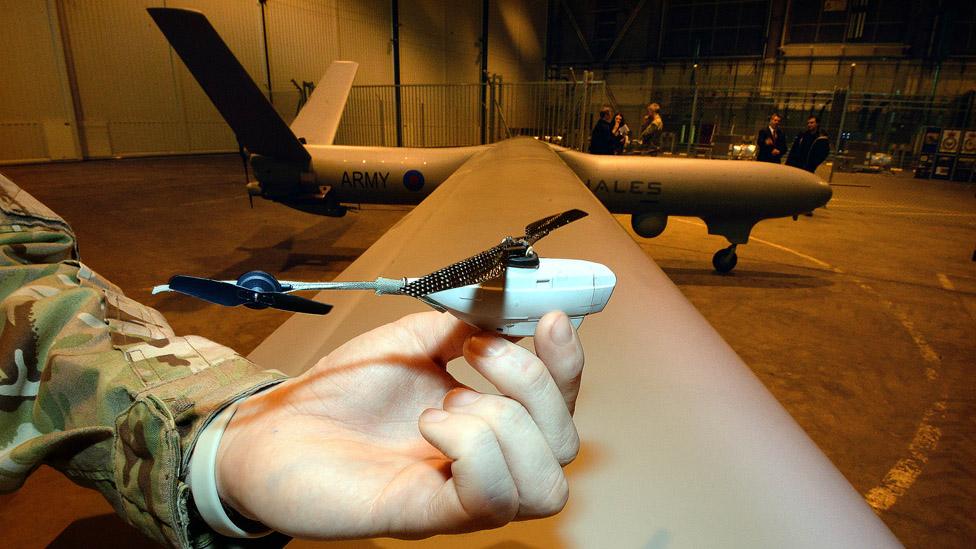
The small Black Hornet drone, used to gather images to help frontline soldiers, and the much larger Watchkeeper, which is also used for reconnaissance but could be "weaponised"
Until now, Britain's primary drone role has been to act as the "eyes" of the military.
Reconnaissance is the act of gaining information about an enemy.
This might involve remotely flying low over suspected militants or sites where they might be hiding, capturing pictures and feeding data back to ground troops or sharing it with allies like the US, who in turn may send in killer drones.
Read more: Inside Britain's military drone base at RAF Waddington
The Ministry of Defence (MoD) states that: "RAF Tornado GR4 and Reaper aircraft continue to fly daily armed reconnaissance missions, using their advanced surveillance capabilities to gather intelligence on ISIL activity in northern and western Iraq, and to strike appropriate targets as they are identified."
These missions are well known and in the past Britain has helped US drone pilots target many militants in Iraq and Taliban chiefs in Afghanistan.
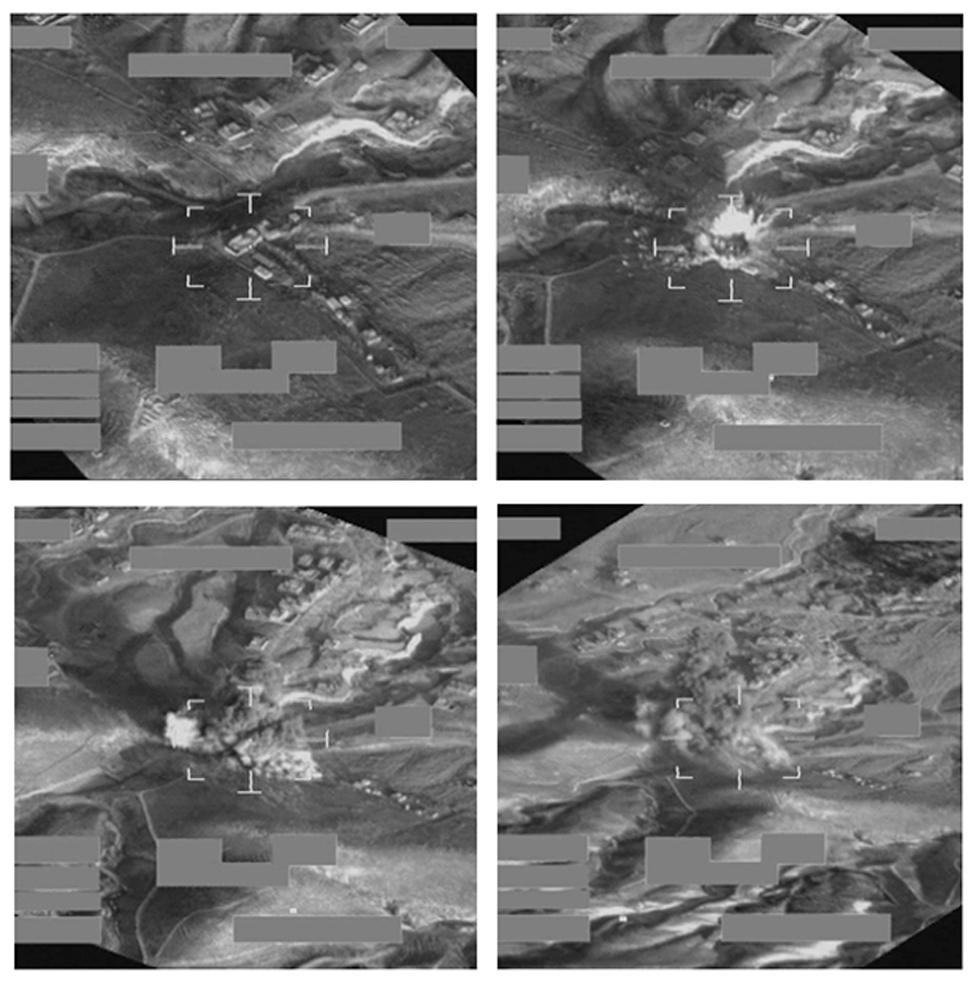
This MoD image shows a group of terrorists in Iraq apparently getting into a vehicle before being tracked by a Reaper and hit by a Hellfire missile
The drone became known as Barack Obama's favourite weapon in the years after George W Bush's presidency.
Using unmanned aircraft avoided putting "boots on the ground" in places where the US was not officially engaged in war.
British military chiefs are fairly secretive about the UK's input but have recently become more open about the use of drones in the fight against so-called Islamic State.
The MoD now regularly puts out images, external, like those above, to show us how the Reaper drone is assisting Iraqi forces.
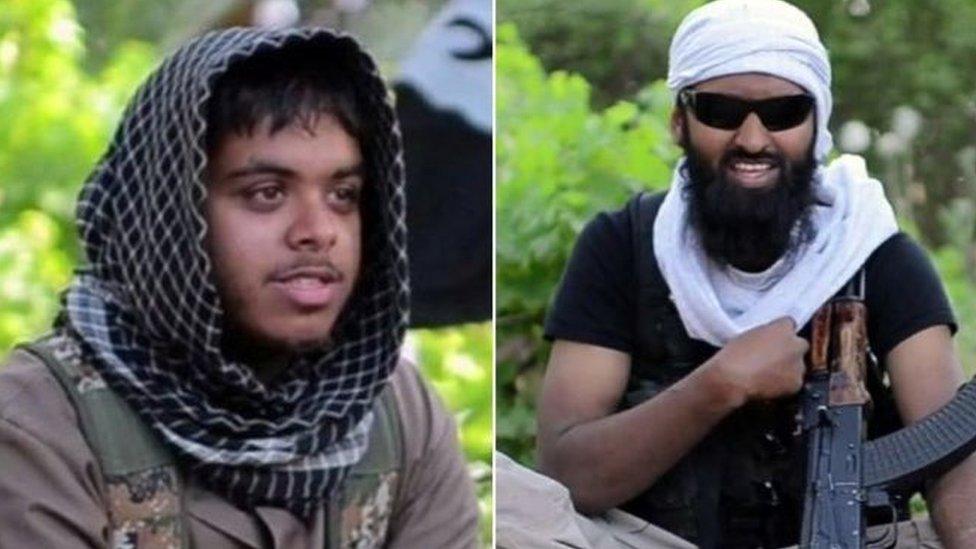
Reyaad Khan, from Cardiff, was the target of the strike which also killed Ruhul Amin, from Aberdeen
So why is everyone talking about the Britons killed by a drone?
Reyaad Khan was killed in a US drone strike at the end of August along with 26-year-old fellow Briton Ruhul Amin.
They were both travelling in the same vehicle in the Raqqa area of Syria, from where Islamic State chiefs control the extremist network.
On Monday, David Cameron announced that 21-year-old Khan was targeted and killed by one of the RAF's unmanned aerial vehicles.
So was it legal to fire on these two men from a drone?
The PM said they were "terrorists who'd been planning a series of attacks" and that the strike was an act of British self defence with a "clear legal basis".
Critics point out that the UK is not at war with Syria and that every nation has the right to defend itself.
In 2013 the government famously lost an MPs' vote on whether to join any US-led air strikes against President Assad.
That effectively ruled out UK troops and aircraft in any operations in Syria.
But since then Islamic State, responsible for war crimes including beheadings, has become a much more threatening force, and not just in the areas it controls in Iraq and Syria.
Watch on YouTube: We explain why IS has so many names, external
America's drone strikes in Pakistan, Somalia and Yemen have been carried out as part of a global war on terror - with the justification that US citizens face imminent threat.
This has been used as a reason for armed drone strikes on suspected militants in geographical areas where sending in troops is not an option.
Until now Britain hasn't used this idea of a broader "war" to justify drone attacks - and this is what is at the core of the current debate.
International law expert Simon Behrman says the UK's Syria drone strike was "dodgy".
"The key issue here is about the targeted killing of people outside of an armed conflict," he said.
"If the UK were engaged in an armed conflict in Syria and the target was an enemy combatant, then it would be legal. But as the UK is not, this does not apply."
Human rights organisation Reprieve went further: "What we are seeing is the failed US model of secret strikes being copied wholesale by the British government."
But Defence Secretary Michael Fallon insists the drone attack which killed the two men was a "perfectly legal act of self defence" because of the threat posed by Islamic State and Britons who join the group.
He added that Britain "would not hesitate" in carrying out further secret drone attacks on suspected jihadis in Syria who pose a threat to citizens back home.
Follow @BBCNewsbeat, external on Twitter, BBCNewsbeat, external on Instagram, Radio1Newsbeat, external on YouTube and you can now follow BBC_Newsbeat on Snapchat